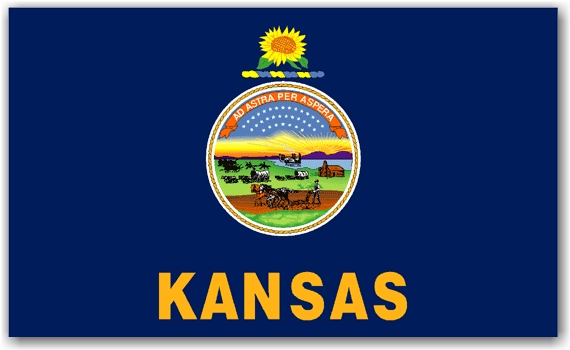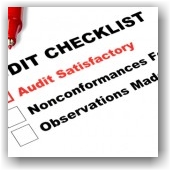Posts Tagged ‘E-Verify’
Saturday, July 21st, 2012
By: Timothy Sutton, Communications Editor
Swiss based Nestle has discovered “numerous” violations of its internal work rules as a result of internal auditing aimed at combatting child labor. The manufacturer of Kit-Kat bars reported that four-fifths of its cocoa comes from unmonitored labor channels. The Fair Labor Association is insisting Nestle implement higher supply chain standards moving forward. The cocoa industry is fraught with child labor issues, with child worker rates reaching upwards of 89% in the Ivory Coast. Unfortunately this far-reaching problem will not be solved overnight, “The complexity of child labor in the cocoa supply chain means solving the problem will take years,” Nestle said.
As a result of Nestle’s voluntary audit, the company has avoided penalties thus far. However, their involvement in child labor comes at a price. The company is now committed to altering supply chain practices and will invest heavily in future monitoring services.
While most American businesses can rest assured they are not supporting the underground child-labor industry, Nestle’s efforts to self-assess and reform should be applauded. Domestic and international companies will benefit greatly from routine internal audits that track workforce compliance. USCIS and ICE encourage employers to frequently perform internal audits of their Form I-9 practices. In fact, records of regular auditing of your workforce may help you avoid hefty civil penalties in the event of an official government audit. The next time you “break off a piece of that Kit-Kat bar,” consider following Nestle’s example of self-auditing and contact one of our immigration professionals at info@immigrationcompliancegroup.com or call 562 612.3996.
Other resources:
Tags: Child Labor Laws, E-Verify, Fair Labor Association, I-9 Audits, I-9 Compliance, I-9 Training, I-9/E-Verify News, Legal Workforce, Nestle, Voluntary Audits, Worksite Enforcement
Posted in Department Of Homeland Security (DHS), I-9/E-Verify News, ICE, Immigration News | Comments Off on Nestle KID-Kat Bars?: Audit Helps Chocolate Maker “Grow Up”
Tuesday, May 15th, 2012
 Please see our attached brochure and contact our office to discuss your compliance needs. Our talented staff can walk you through our customized services and solutions.
Please see our attached brochure and contact our office to discuss your compliance needs. Our talented staff can walk you through our customized services and solutions.
Tags: E-Verify, EMPLOYMENT ELIGIBILITY, I-9 Audits, I-9 Form, I-9 process, I-9 Solutions, I-9 Training, I-9/E-Verify News, ICE Audits, Legal Workforce, Undocumented Workers
Posted in I-9/E-Verify News, ICE, Immigration News | Comments Off on ICE I-9 Audits: With 3,000 Audits Expected this Year – What’s an Employer to do?
Monday, May 14th, 2012
 By: Timothy Sutton, Communications Editor
By: Timothy Sutton, Communications Editor
State legislatures in Kansas recently voted down a bill that would mandate all employers utilize the E-verify employment verification system. The federal government currently encourages employer’s voluntary participation in E-verify under the Illegal Immigration Reform and Immigrant Responsibility Act of 1996 (IIRIRA). Although there are numerous benefits to participating in E-verify, blanket mandates burden all businesses regardless of size and resources. Legislatures across the country are proposing these mandates in an attempt to target employers who wish to remain “willfully blind” to their employees immigration status. The Kansas bill proposed excluding contractors who did not participate in E-verify from bidding on government contracts valued at $50,000 and above. When the bill failed by a vote of 84-35 businesses across the state heaved a temporary sigh of relief. Kansas will likely see this bill return in the near future, as the main deterrent for passing the bill was a lack of time and resources to adjust the state budget that takes effect on July 1, 2012.
Employers should be aware that although the federal government controls immigration laws, states are currently placing additional restrictions on employers adding additional layers of compliance measures aimed at reducing illegal immigrant populations. Controversial immigration laws passed by the state of Alabama, which mandate employer’s participation in E-verify, have sparked lawsuits by the Obama administration. Various industries are hit hard by such mandates including the agricultural industry.
Numerous farmers have prepared for a significant reduction in available labor by planting crops that can utilize machines to perform the work in place of immigrant laborers. H.B. 87, which recently passed in the state of Georgia, requires that all public employers and private employers utilize E-verify in advance of securing business licenses and permits. While these mandates appear to keep employers “honest,” in their hiring practices, they come at both an economic and social cost. Businesses bear the economic burden of compliance while minority populations pay the social cost of increased racial discrimination.
Mandates create an additional layer of workplace compliance that many small businesses lack the manpower and training to adhere to. Additionally, workplace verification screening without proper guidance by attorneys or employment specialists may lead to an increase in discriminatory employment practices. In light of the growing trend of state laws mandating E-verify participation, employers are encouraged to seek trained professionals for training and education on compliance with the law. For more information contact one of our immigration professionals at info@immigrationcompliancegroup.com or call 562 612.3996.
Tags: E-Verify, Georgia H.B 87, I-9 Form, I-9/E-Verify News, I-9/E-Verify News, ICE, ICE Audits, Kansas E-Verify Bill, Legal Workforce, State Legislatures, Undocumented Workers
Posted in I-9/E-Verify News, ICE, Immigration Legislation, Immigration News | Comments Off on E-Verify: State Legislatures Push For E-Verify Mandates | News from Immigration Compliance Group
Friday, April 27th, 2012
 One of the most important questions in the mind of both employer and employee is: What if information about the employee is wrong – can they fix inaccurate information about themselves in E-Verify?
One of the most important questions in the mind of both employer and employee is: What if information about the employee is wrong – can they fix inaccurate information about themselves in E-Verify?
If E-Verify is unable to automatically verify an individual’s status in order to authorize employment, a Status Verifier will manually review the information and conduct searches of other Federal government databases and, where necessary, will update any underlying information contained within the various DHS databases queried. After a result is returned on an employment authorization query, E-Verify provides two methods of information correction and redress for employees. If an employee receives a Tentative Non Confirmation, or TNC, they may correct their information through the Social Security Administration (SSA) or DHS.
After the verification process is complete, individuals have the opportunity to access and correct their information through the Freedom of Information Act (FOIA) or Privacy Act (PA) process.
We link to more E-Verify Privacy FAQs and our I-9 Employer Resource Center
Immigration Compliance Group specializes in business immigration and employer compliance matters related to audits, training and policy development.
Tags: Department Of Homeland Security (DHS), E-Verify, E-Verify News, E-Verify Privacy, E-Verify Self Check, Employment Eligibility Verification, I-9, I-9/E-Verify News, I9 Policies, ICE, Legal Workforce, Worksite Enforcement
Posted in Department Of Homeland Security (DHS), I-9/E-Verify News, ICE, Immigration News | Comments Off on E-Verify Privacy Issues | News from Immigration Compliance Group
Friday, March 9th, 2012
 In a transcript released today of ICE Director John Morton’s testimony before the House Committee on Appropriations, Subcommittee on Homeland Security Hearing on The President’s Fiscal Year 2013 budget request for ICE, the message was clear….ICE intends to keep the pressure on employers with a continued focus on I-9 audits this year, as stated below in his statement concerning worksite enforcement:
In a transcript released today of ICE Director John Morton’s testimony before the House Committee on Appropriations, Subcommittee on Homeland Security Hearing on The President’s Fiscal Year 2013 budget request for ICE, the message was clear….ICE intends to keep the pressure on employers with a continued focus on I-9 audits this year, as stated below in his statement concerning worksite enforcement:
“We are focused on smart and effective enforcement of our immigration laws, including making sure that employers have the tools they need to maintain a legal workforce and face penalties if they knowingly violate the law.
Employment opportunities remain a primary motivation for aliens seeking illegal entry into the United States. By focusing on employers that are willing to hire illegal workers, we can eliminate the incentive that leads illegal aliens to violate our nation’s immigration laws. Since January 2009, ICE has audited more than 6,468 employers suspected of hiring illegal labor, debarred 521 companies and individuals, and imposed more than $76.4 million in financial sanctions. This focus will continue this coming fiscal year.
We have also established the ICE Mutual Agreement between Government and Employers program (IMAGE) — designed to promote voluntary compliance, educate employers about best practices and help companies train their employees to comply with the nation’s immigration-related employment laws. Last year, ICE entered into IMAGE agreements with well-known companies, including Chick-fil-A, Smoothie King, Best Western, Toyota, Tysons Food, and Kelly Services, among others. These companies agree to use E-Verify, conduct self-audits, and submit to an ICE audit. In FY 2013, ICE will continue to expand IMAGE outreach nationwide and provide regional and local IMAGE training conferences to increase voluntary compliance among key employers.”
This information should come as no surprise to our readership, who are very well informed. We would, however, like to remind you that a good faith effort is the primary consideration by ICE when determining final penalties in their worksite audits and investigations. To establish a good faith effort, have an outside audit performed by an experienced professional to determine what problems you really have; correct your paperwork, get everyone properly trained; create a written SOP statement to get everyone on the same page and enlisted in the process of maintaining a compliant workforce; enrolling in E-Verify is also recommended.
We invite you to contact our firm regarding any compliance questions/issues that you have, 562 612.3996, or by email, info@immigrationcompliancegroup.com. Check out our Employer Resource Center at www.I-9Audits.com, and our list of services and solutions.
Tags: E-Verify, Employer Compliance, I-9 Audits, I-9 Form, I-9 Policy, I-9 Training, ICE, ICE Audits, ICE investigations, John Morton, Legal Workforce, SSA No-Match, Worksite Enforcement
Posted in I-9/E-Verify News, ICE | Comments Off on ICE Reminds us of Continued Focus/Pressure on Worksite Enforcement
Tuesday, March 6th, 2012
 We have heard many recent reports that ICE will step up the pressure on its I-9 Field Agents to surpass the number of I-9 audits they performed in 2011, and that they will be looking at various industries such as employers in critical food, energy, and infrastructure industries. In June 2011, ICE did not specify which businesses would be specifically targeted, but did say that immigration agents would focus on seventeen sectors including agriculture, financial services, nuclear reactors, water treatment, and health care.
We have heard many recent reports that ICE will step up the pressure on its I-9 Field Agents to surpass the number of I-9 audits they performed in 2011, and that they will be looking at various industries such as employers in critical food, energy, and infrastructure industries. In June 2011, ICE did not specify which businesses would be specifically targeted, but did say that immigration agents would focus on seventeen sectors including agriculture, financial services, nuclear reactors, water treatment, and health care.
It has been recently reported by the Farm Employer’s Labor Service (FELS) that the EVP of NCAE (National Council of Agricultural Employers) was informed by credible sources that ICE field agents will once again focus their I-9 audit investigations on high-profile agriculture and restaurant employers to surpass their 2,496 I-9 audits and 3,291 work site enforcement cases conducted in 2011. More specifically, they are again (no surprise) targeting high-profile/maximum press coverage employers, the biggest farms and restaurants, and employers who were previously audited and/or had issues with DOL or DHS in the past – who can now expect to be be revisited in 2012.
With good faith effort being one of the most important rules applied in ICE enforcement audits and investigations, it is recommend that all employers get their ‘houses in order’ as it relates to I-9 employment verification eligibility compliance. We would strongly suggest that you put your emphasis on retaining an outside expert to perform a thorough I-9 audit of your active and inactive I-9 forms to really get a handle on problems and reoccurring issues buried in your I-9 forms. This step alone can save you hundreds of thousands of dollars, as well as the potential of losing employees and recruitment and re-training costs. Then get your staff trained and don’t let anyone not properly trained be involved with hands-on I-9 functions. Next, establish a written compliance statement outlining the SOP that your company will follow — a plan that makes sense for your business……then implement it, and be diligent in your efforts to create and maintain a compliant workforce showing a good faith effort to comply with I-9 regulations to the best of your knowledge and ability. Lastly, avail yourself of reliable information from skilled professionals that report on compliance issues – subscribe to a newsletter and a blog so that you can stay ahead of the game. You should check out our free information – both blog and newsletters.
We invite you to contact our firm to discuss your compliance issues, info@immigrationcompliancegroup.com or call 562 612.3996.
:::::::::::::::::::::::::::
Immigration Compliance Group focuses its practice on corporate employment verification compliance and US and Canadian inbound business immigration. Our team has a depth of experience in providing uniquely tailored services and solutions to assist clients in developing comprehensive employment authorization and immigration-related compliance. We conduct onsite and offsite I-9 audits for companies of all sizes, design training curriculum to assure that staff is knowledgeable concerning the management of their I-9 program, and we assist with policy development so that our clients have a plan and strategy that assures their compliance in a manner that makes sense for their business and evidences their good faith in establishing a compliant workforce.
Tags: E-Verify, Employer Compliance, I-9, I-9 Audits, I-9 Form, I-9 Penalties, I-9 Training, I-9 Updates, ICE, ICE Agents, ICE Audits, Immigration Compliance Group, Legal Workforce, NOI, SSA No-Match, Worksite Enforcement
Posted in Department Of Homeland Security (DHS), I-9/E-Verify News, ICE | Comments Off on I-9 News Update: Industries that ICE is Targeting
Sunday, February 5th, 2012
 It has been recently reported that ICE is launching another round of worksite investigations, but this time, returning to employers that have already been through a federal investigative audit in the last three years. We’ve not seen this before. Approximately 500 employers are being re-visited by ICE Special Agents to confirm that non-compliant activity identified during prior audits has been resolved.
It has been recently reported that ICE is launching another round of worksite investigations, but this time, returning to employers that have already been through a federal investigative audit in the last three years. We’ve not seen this before. Approximately 500 employers are being re-visited by ICE Special Agents to confirm that non-compliant activity identified during prior audits has been resolved.
Employers must make sure they are hiring only people who can work legally in the U.S. Businesses that previously have received warning letters or administrative fines may now be the subject of yet more fines if ICE Special Agents determine that the employer continues to make the same mistakes.
Bear in mind, that several Federal agencies have the authority to review your I-9 forms, these agencies consist of ICE, The Office of Special Counsel for Immigration-Related Unfair Employment Practices (OSC) and the DOL, Wage and Hour Division. Each of these agencies investigate violations in the I-9 process, and we strongly advise that employers need to be prepared for a visit from any one of them.
ICE has recently announced their enforcement related statistics in the area of I-9 compliance for 2011, as follows:
- 2,496 I-9 audits were conducted
- 3,291 worksite enforcement cases were initiated
- Criminally arrested 221 employers
- Issued 385 Final Orders for $10.4+ million in fines; and
- Debarred 115 individuals and 97 businesses
These enforcement statistics should indeed be troubling to employers, particularly given that they don’t reflect the number of ICE notices (such as the Notice of Discrepancies or Notice of Suspect Documents) that are sent to employers, who are otherwise compliant, but may have accepted fraudulent documents or whose employees may have purchased the identity of a US citizen for work authorization purposes, despite your best efforts. As a result of this, employers across the country have had to terminate thousands of employees and incur the expense of hiring and training new employees.
ICE expects to audit some 3,000 employers in 2012. We recommend that you hire experts in the field to conduct either a partial or full audit, depending upon your circumstances, train personnel who are charged with the processing of your I-9 forms, and develop a written policy statement that reflects your goals for remaining compliant.
Tags: E-Verify, Employer Compliance, I-9 AUDIT, I-9 Fines, I-9 News, I-9 Penalties, I-9 Training, ICE Audits, Immigration Compliance Group, Immigration News, Legal Workforce, NOI, Notice of Discrepancies, Notice of Suspect Documents, SSA No-Match, Worksite Enforcement Trends
Posted in Department Of Homeland Security (DHS), DOJ, I-9/E-Verify News, ICE | Comments Off on Update: What’s the Current Immigration Enforcement Climate?
Monday, January 30th, 2012
 This brochure outlines some excellent Do’s and Don’ts pertaining to how to interact with employees during an ICE audit; however, these suggestions additionally apply to all audit situations such as outside 3rd party audits by attorneys or compliance experts, as well as internal self-audits.
This brochure outlines some excellent Do’s and Don’ts pertaining to how to interact with employees during an ICE audit; however, these suggestions additionally apply to all audit situations such as outside 3rd party audits by attorneys or compliance experts, as well as internal self-audits.
It is recommended that you have an established procedure for interacting with employees whose I-9 forms require correcting; i.e, how to inform them that you are seeking information from them, what to communicate to them, and how much time to allow them to respond.
Should you wish to discuss the particulars of your compliance program, please feel to contact our office for more information.
::::::::::::::::::
Leslie Davis is the Managing Director of Immigration Compliance Group and is an expert in employer compliance matters. The firm also specializes in US and Canadian business immigration.
Tags: E-Verify, Employer Compliance, EMPLOYMENT ELIGIBILITY, I-9 Audits, I-9 Compliance, I-9 Corrections, I-9 Fines, I-9 management, I-9 process, ICE Audits, ICE regulations, Legal Workforce, SSA No-Match, Worksite Enforcement
Posted in I-9/E-Verify News, ICE | Comments Off on I-9 Best Practice Audit Recommendations from OSC
Friday, January 6th, 2012
 The Justice Department has reached a settlement agreement with University of California San Diego Medical Center for $115,000 (one of the higher civil penalties we’ve seen) for a complaint filed on Dec. 6, 2011, alleging that the medical center failed to comply with proper I-9 Form employment eligibility verification processes for non-citizens who are authorized to work in the United States.
The Justice Department has reached a settlement agreement with University of California San Diego Medical Center for $115,000 (one of the higher civil penalties we’ve seen) for a complaint filed on Dec. 6, 2011, alleging that the medical center failed to comply with proper I-9 Form employment eligibility verification processes for non-citizens who are authorized to work in the United States.
Specifically, the DOJ’s complaint alleged that UCSD medical center engaged in a pattern of subjecting newly hired non-U.S. citizens to excessive demands for documents issued by the Department of Homeland Security in order to verify their employment eligibility, but did not require the same of US citizens. The Immigration and Nationality Act’s (INA) anti-discrimination provision prohibits employers from placing unfair documentary burdens on work-authorized employees during the hiring and employment eligibility verification process based on their citizenship status or national origin. Clearly put, it is illegal to discriminate against work authorized individuals. You simply cannot specify which documents are to be presented. This is considered document abuse.
The medical center has taken appropriate action to ensure compliance with INA’s anti-discrimination provision and has received Department of Homeland Security/U.S. Immigration & Customs Enforcement (ICE) training on the proper use of work authorization documents. They have also agreed to work with the DOJ to ensure compliance with proper I-9 processes across all University of California campuses, medical centers and facilities.
Under the terms of the settlement agreement, the medical center agrees to implement new employment eligibility verification policies and procedures that treat all employees equally regardless of citizenship status. In addition, the medical center has agreed to pay a civil penalty of $115,000, conduct supplemental training of its human resources personnel on their responsibilities to avoid discrimination in the employment eligibility verification process and work with the department to ensure compliance with proper employment eligibility verification processes across all University of California campuses, medical centers and facilities.
Heightened Enforcement Continues
During the past few years, we have seen unprecedented enforcement and legislative activity relating to Form I-9 and E-Verify worksite compliance. Since fiscal year 2009, ICE has audited more than 6,000 employers, debarred 441 companies and individuals, and imposed more than $76 million in financial sanctions. We have also seen an unprecedented increase in the number of enforcement actions brought about by the Department of Justice (DOJ) for discrimination in the I-9 process. The Office of Special Counsel (OSC) has robustly prosecuted claims of discrimination in the I-9 process resulting in fines and penalties against employers, as well as back pay to injured parties.
What employers need to know
You just cannot presume that the employees charged with managing your I-9 program are compliant with the law and adhering to anti-discrimination rules and regulations. If you are not training your employees, then you are turning a blind eye to establishing a compliant workforce, the consequences of which today are severe and expensive – not to mention the bad press that accompanies such an investigation.
Employers cannot request specific documents (such as a green card), reject documents that reasonably appear to be genuine and relate to the employee presenting them, request that employees produce more documents than are required or treat groups of applicants differently when completing the I-9 form. You must examine ANY acceptable document from List A that appears to be genuine and that relates to the worker, or a combination List B plus a List C document, regardless of whether or not
Let’s re-visit ICE’s list of best practices that include the following as a reminder to employers:
- Use E-Verify,
- Use the Social Security Number Verification Service (SSNVS) for wage reporting purposes
- Establish a written hiring and employment eligibility verification policy.
- Establish an internal compliance and training program related to the hiring and employment verification process
- Require the I-9 process to be conducted only by individuals who have received appropriate training and include a secondary review as part of each employee’s verification to minimize the potential for a single individual to subvert the process.
- Arrange for annual I-9 audits by an external auditing firm or a trained employee not otherwise involved in theI-9 process.
- Establish a protocol for responding to letters or other information received from federal and state government agencies indicating that there is a discrepancy between the agency’s information and the information provided by the employer, such as SSA “No-Match” letters
- Establish and maintain appropriate policies, practices and safeguards to ensure that authorized workers are not treated differently with respect to hiring, firing, or recruitment or referral for a fee or during the Form I-9, E-Verify or SSNVS processes because of citizenship status or national origin.
- Maintain copies of any documents accepted as proof of identity and/or employment authorization for all new hires.
For more, refer to:
1) DOJ Press Release
2) DOJ Press Release on one of the largest settlements against a major healthcare system
3) Our list of services and solutions
__________________
About Immigration Compliance Group
For those of you who may be first time readers, Immigration solutions provides US and Canadian business immigration services to employers and individuals and additionally provides a full range of I-9 employment eligibility compliance services for employers that require I-9 audits, training, and compliance policy development.
Tags: DOJ, E-Verify, Employer Compliance, Employment Eligibility Verification, Healthcare, I-9 Audits, I-9 Discrimination, I-9 Fines, I-9 management, I-9 News, I-9 Penalties, I-9 Training, I9 Document Abuse, ICE, Immigration Compliance Group, Legal Workforce, OSC, SSA No-Match, UC San Diego Medical Center
Posted in DOJ, Healthcare, I-9/E-Verify News, ICE, Staffing Agencies | Comments Off on Form I-9 Discrimination | CA University Medical Center Pays $115,000
Monday, January 2nd, 2012
Five states as of January 1, 2012 require certain employers to use the E-Verify system for employment eligibility verification of newly hired employees. They are as follows:
Alabama: State contractors are required to e-verify new employees. Commencing April 1, 2012, all Alabama employers will b e required to use E-Verify. Business licenses can be suspended up to 60 days for a first violation and permanently revoked for a second violation.
Georgia: All private employers with 500 employees or more must use E-Verify as of 01/01/2012 for all new hires. This will expand to on July 1, 2012 for employers with 100-499 employees, and for employers with 11-99 employees as of July 1, 2013. Contractors can be barred from bidding on public contracts for 12 months for violations. Public employers must submit annual compliance reports.
Louisiana: All private employers seeking public contracts to provide services to a state or local public entity will be required to attest that they will use E-Verify for their new hires in Louisiana as of January 1, 2012 during the term of the contract, and the same for their subcontractors. Penalties for violations include: up to $500 fine per worker for a first offense, up to $1,000 for a second and up to $2,500 for a third offense. After the third offense the business license can also be suspended for a minimum of 30 days and no more than 6 months. Employers using E-Verify are presumed to be in good faith and not subject to penalties.
South Carolina: All employers are required to participate in E-Verify as of 01/01/2012. Presently, employers have had the option to hire only employees that possess or qualify for a South Carolina driver’s license (or other state license with similar strict requirements) instead of using E-Verify, but that option will expire as of 01/01/2012.
Tennessee: All private employers with 500 or more employees must either use E-Verify, or obtain and copy specified documentation of lawful status for all new hires as of January 1, 2012. those with 200 to 499 employees on or after July 1, 2012; those with 6 to 199 employees, on or after January 1, 2013. Employers with less than 6 employees will not have to use E-verify.
For current information on state E-Verify requirements, we link here
Should you have any questions pertaining to state E-Verify requirements, please contact our office at info@immigrationcompliancegroup.com or call 562 612.3996.
Tags: E-Verify, E-Verify News, Employer Compliance, EMPLOYMENT ELIGIBILITY, Five States Implement E-Verify, I-9 Form, Immigration Compliance Group, Legal Workforce, SSA No-Match
Posted in I-9/E-Verify News, ICE | Comments Off on E-Verify Requirements for 5 States as of January 1, 2012


 By: Timothy Sutton, Communications Editor
By: Timothy Sutton, Communications Editor



